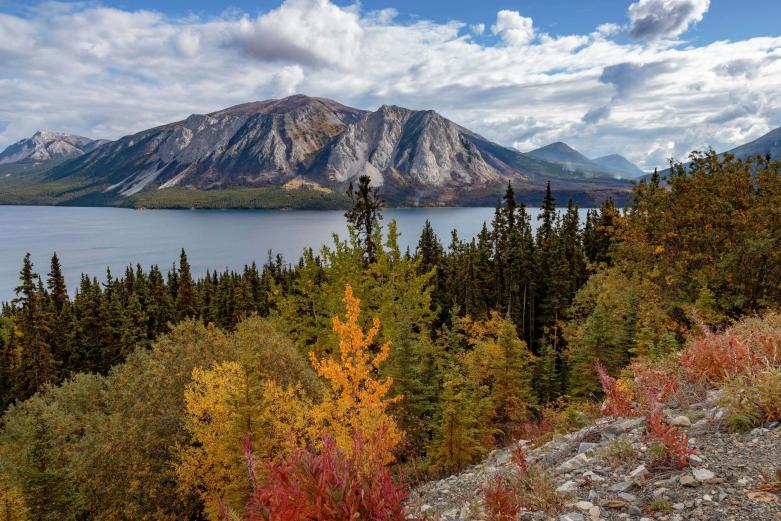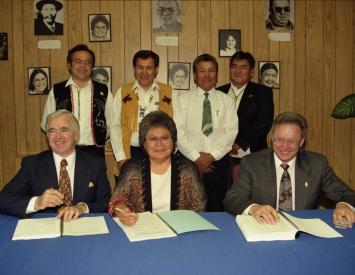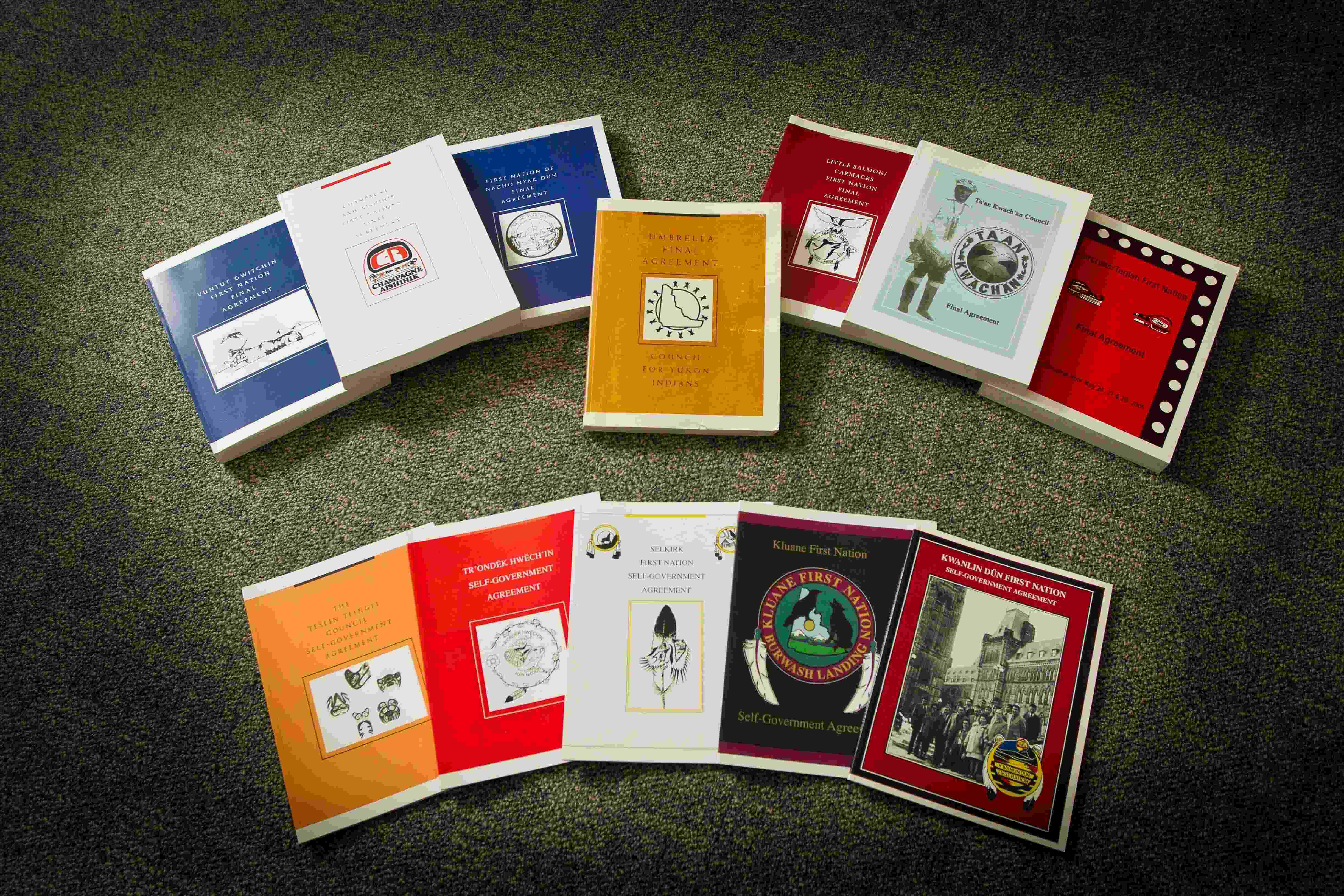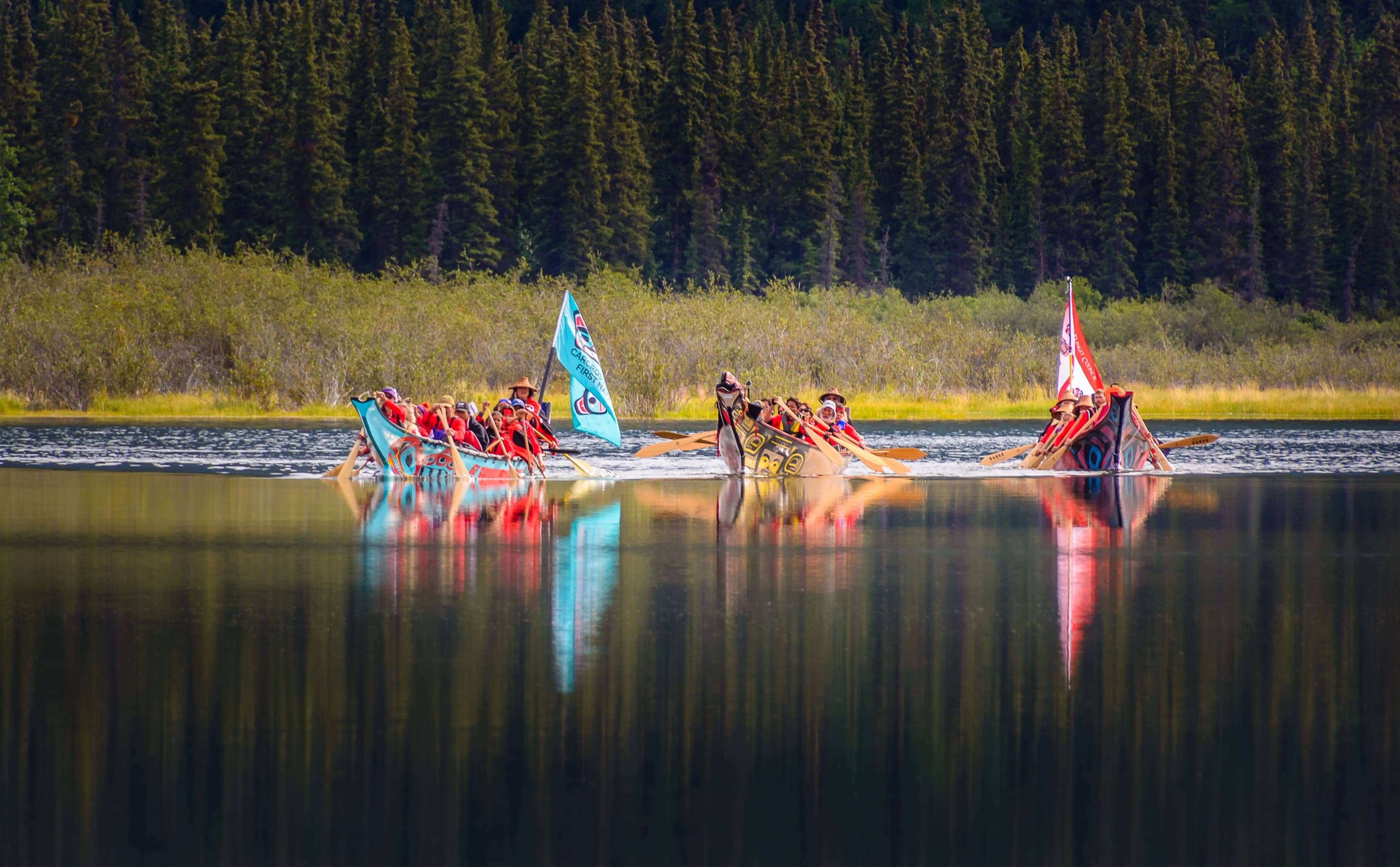Changing the Yukon's governance landscape

Why negotiate modern treaties?
First Nations have lived in the Yukon for thousands of years, long before Canada or the Yukon existed. Because of this, Yukon First Nations people have Aboriginal rights and title on the land they traditionally used and occupied. These rights are protected by section 35 of the Canadian constitution, but they aren't defined.
Comprehensive land claim agreements – or modern day treaties – are agreements that exchange undefined Aboriginal rights for defined treaty rights, and title to Settlement Land.
Yukon's Final and Self-Government Agreements are modern treaties between a First Nation, the Government of Canada and the Government of Yukon. These agreements:
- Promote reconciliation between First Nations, Canada and Yukon, and provide a foundation for lasting intergovernmental relationships
- Provide for community-level decision-making and self-determination for First Nations
- Protect a way of life that is based on a spiritual and economic relationship with the land
- Increase certainty with regards to land and resource ownership and use, thereby creating a stable environment for investment
- Provide financial benefits and economic opportunities for First Nations governments and local communities and businesses
What are Yukon's modern treaties?
Umbrella Final Agreement:
The Umbrella Final Agreement (UFA) was negotiated by all Yukon First Nations over 20 years. It was signed in 1993, by the Council of Yukon First Nations, the Government of Canada and Government of Yukon. It was the framework for negotiating individual Yukon First Nation Final and Self-Government Agreements. It:
- defined the amount of land and financial compensation for each First Nation
- called for the creation of a number of boards and committees to provide community-based input, recommendations, and decisions to government
- provided templated text for the Chapters of the Final and Self-Government Agreements
Final Agreements:
Between 1993 and 2005 eleven Yukon First Nations reached Final Agreements with the Government of Yukon and Canada. These Agreements:
- are constitutionally-protected (section 35) modern-day treaties
- define First Nations rights on Settlement Land, and within their Traditional Territory
- address heritage, fish and wildlife, non-renewable resources, water management, forestry, taxation, financial compensation, economic development measures and land owned and managed by the First Nation
Self-Government Agreements:
Self-Government Agreements were negotiated alongside the Final Agreements. They:
- provide First Nations with the power to control and direct their own affairs
- define First Nations laws and decision-making powers
- outline the ability of a First Nation to assume responsibility for delivering a program or service to its citizens
The Self-Government Agreements enable First Nations to make laws and decisions on their Settlement Land and for their Citizens, similar to those of a Canadian province or territory.
Signing and effective dates of Yukon Agreements
The federal Indian Act no longer applies to the 11 Yukon First Nations who reached Final and Self-Government Agreements with the governments of Yukon and Canada.
Together Today for Our Children Tomorrow
Date presented to federal government: February 14, 1973
Umbrella Final Agreement
Date of signing: May 29, 1993
Champagne and Aishihik First Nations
Date of signing: May 29, 1993
Effective date: February 14, 1995
First Nation of Nacho Nyak Dun
Date of signing: May 29, 1993
Effective date: February 14, 1995
Teslin Tlingit Council
Date of signing: May 29, 1993
Effective date: February 14, 1995
Vuntut Gwitchin First Nation
Date of signing: May 29, 1993
Effective date: February 14, 1995
Little Salmon/Carmacks First Nation
Date of signing: July 21, 1997
Effective date: October 1, 1997
Selkirk First Nation
Date of signing: July 21, 1997
Effective date: October 1, 1997
Tr’ondëk Hwëch’in
Date of signing: July 16, 1998
Effective date: September 15, 1998
Ta’an Kwäch’än Council
Date of signing: January 13, 2002
Effective date: April 1, 2002
Kluane First Nation
Date of signing: October 18, 2003
Effective date: February 2, 2004
Kwanlin Dün First Nation
Date of signing: February 19, 2005
Effective date: April 1, 2005
Carcross/Tagish First Nation
Date of signing: October 22, 2005
Effective date: January 9, 2006


